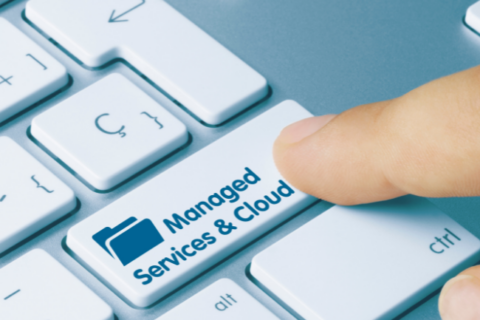8 Things CFOs Should Know About IT
As businesses become increasingly reliant on technology, the role of Information Technology (IT) in driving financial performance has never been more important. As a result, CFOs need to have a solid understanding of IT and how it impacts their organization’s finances. The dynamics between the CFO and the CIO require constant collaboration and sometimes even a technology advisor to help bridge the gaps. In this article, we’ll explore eight things that CFOs should know about IT and ways to enhance collaboration.
1. IT Budget
The IT budget is a crucial element of any organization’s overall financial strategy. As a CFO, you need to have a clear understanding of how much is being spent on IT and what the money is being spent on. This will help you make informed decisions about which IT investments are worth making and which ones should be avoided. While this may create a running dialogue as technology changes, you can see why it’s vital that CFOs should know about IT requirements and it’s impact on company’s projections.
2. Return on Investment (ROI)
Every IT investment needs to generate a positive return on investment (ROI). As a CFO, you need to have a solid understanding of how each IT investment is contributing to the organization’s financial performance. You should also be able to track the ROI of each investment over time, to ensure that it continues to generate value.
3. Security
Cybersecurity threats are a constant concern for businesses of all sizes. As a CFO, you need to ensure that the organization’s IT systems are secure and that there is minimal risk of a cyber-attack or data breach. This requires a proactive approach to security, including regular vulnerability assessments and a focus on employee training and awareness.
4. Compliance
The IT landscape is constantly changing, and it’s essential for organizations to stay compliant with all relevant regulations and standards. As a CFO, you need to ensure that the organization is compliant with regulations such as the General Data Protection Regulation (GDPR) and the Payment Card Industry Data Security Standard (PCI DSS).
5. Efficiency
Efficiency is a critical factor in driving financial performance. As a CFO, you need to ensure that the IT department is operating efficiently and that resources are being used effectively to achieve business objectives. This includes a focus on streamlining processes, reducing waste, and maximizing the value of each IT investment.
6. Business Intelligence
IT has the potential to provide CFOs with valuable business intelligence. By leveraging real-time data and analytics, CFOs can make better financial decisions and gain a deeper understanding of the organization’s financial performance. As a CFO, you should work closely with the IT department to ensure that the necessary systems and processes are in place to deliver this valuable information.
7. Innovation
IT can be a powerful tool for driving innovation within the organization. As a CFO, you need to understand how IT can support innovation and help create new revenue streams or improve existing ones. This requires a willingness to embrace new technologies and a culture of experimentation and risk-taking.
8. Scalability
IT needs to be scalable to support the organization’s growth. As a CFO, you need to ensure that the IT infrastructure can scale to meet the organization’s changing needs, and that the associated costs are manageable. This requires a focus on long-term planning and a willingness to invest in the necessary infrastructure to support growth.
By focusing on the eight key areas that CFOs should know about IT, the CFO can ensure that the organization’s IT investments are generating a positive ROI, supporting growth, and driving business success. The dynamics between the CFO and the CIO require constant collaboration and sometimes even a technology advisor to help bridge the gaps. CFOs need to have a solid understanding of IT and its impact on financial performance while CIOs need to ensure the organization is utilizing technology in the best way possible. Outsourcing certain aspects of IT is an option that may be worth exploring too!
Conscious Networks assists CFOs and CIOs with these important challenges and we discuss those dynamics further, in another article. Schedule a consultation with our business and technology advisory team today.



